Sashiko Pattern Seigaiha
The traditional Japanese pattern seigaiha 青海波 means "waves of the blue sea." | Sashiko Pattern
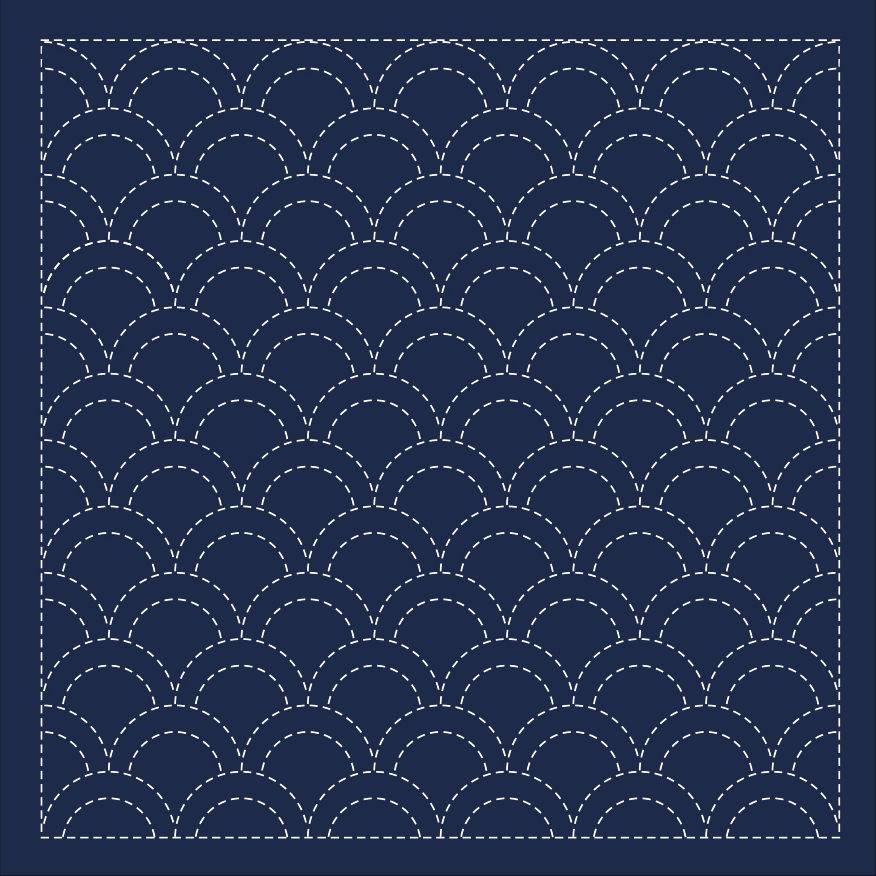
Sashiko pattern seigaiha's meaning
The traditional Japanese pattern seigaiha 青海波 means "waves of the blue sea." 青 means "blue", 海 means "sea", and 波 means "wave." As the name suggests, the pattern represents stylized waves lined up next to and atop each other, with the center moved to the side by half the diameter of a circle each row.
Sashiko pattern seigaiha's background
Like many traditional patterns, seigaiha is a kisshōmonyō 吉祥文様 "lucky omen pattern." Kisshōmonyō patterns represent good luck and can often be found on kimonos worn at festivities or used on gift wrappings for happy occasions. Each pattern has its own distinct meaning.
Seigaiha's waves represent a wish for happiness to reverberate forever into the future. It also stands for people's living together happily in harmony. As a kisshōmonyō, it is thought to bring good fortune.
Sashiko pattern seigaiha's stitching directions
The pattern is usually stitched from the top down, first a line of big "waves" followed by a line of small waves. You carry the thread over to the next little wave in between two layers of fabric or on the backside if you only stitch on one layer.
To draw the pattern, you need to half-circles cut out and marks on your fabric that indicate where to put the circles so they line up neatly. Too much hassle? Get a cloth with marks already on it:
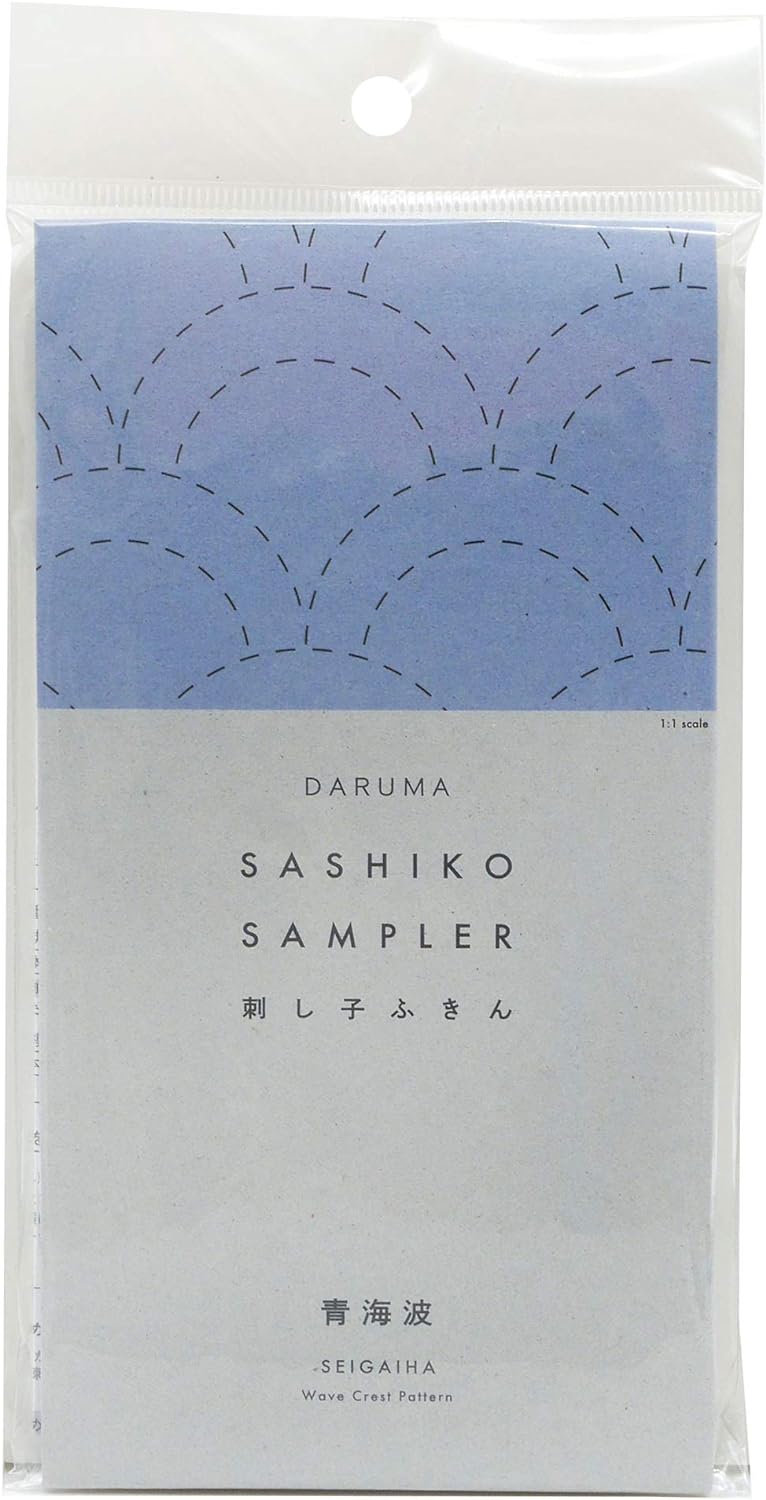
Pre-printed fabric by Daruma
If you want to do sashiko, but you don't want the hassle of drawing the pattern yourself, Daruma offers fabric that has the pattern printed on it. The lines vanish on the first wash. Super easy!
Leave a comment if you are interested in detailed instructions and I will upload more information as soon as possible.

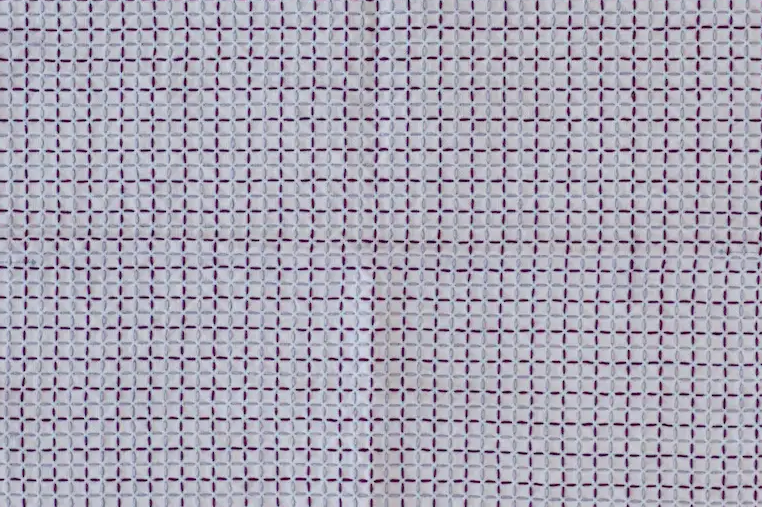
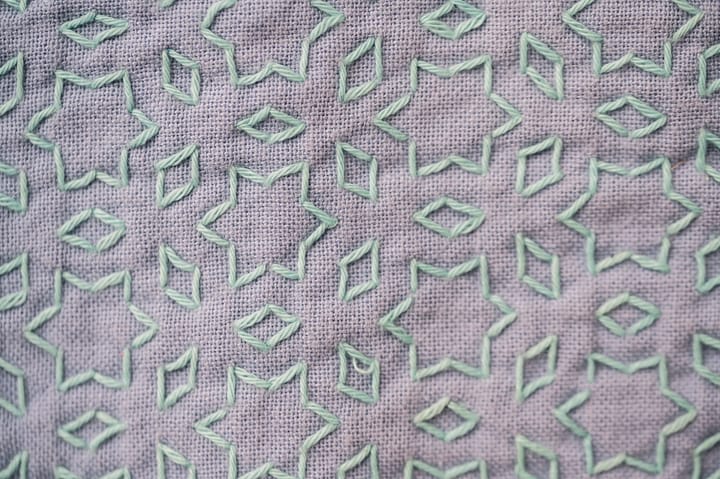
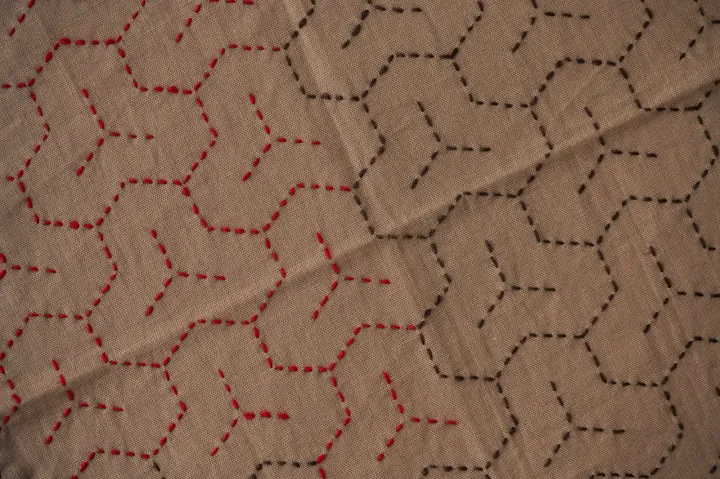
Comments ()